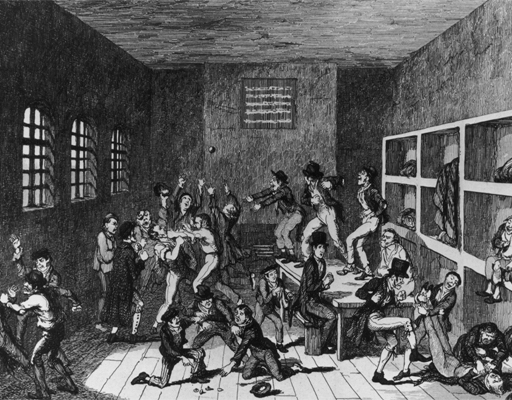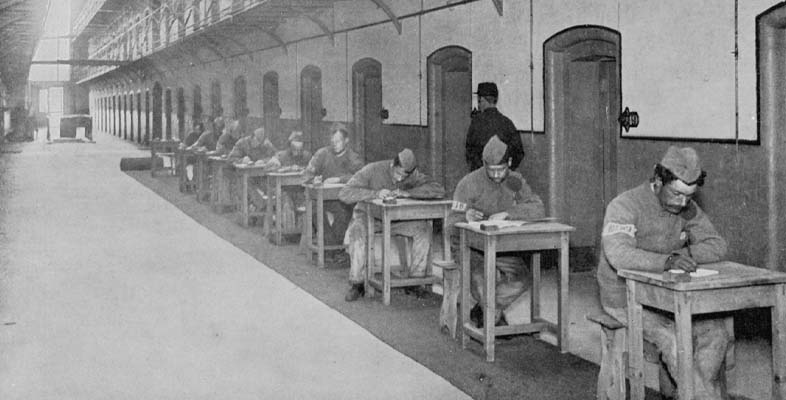7 Summary of Session 4

In this session, you have learned about how books and libraries provided another means of educating prisoners during the 1800s. Prisoners were gradually offered a wider variety of text beyond the Bible and Christian tracts. While control was still exercised over which books would be made available, for some prisoners, often the literate and well-behaved, there was a choice of reading matter. Books provided prisoners with opportunities to improve their literacy skills and to gain new knowledge. Books could also affect prisoners’ mental health in positive and negative ways.
You should now be able to:
- identify other forms of learning and self-improvement outside the prison school
- discuss debates about the suitability of reading matter for prisoners
- describe how prisoners accessed and used the books available to them.
You are now halfway through the course. The Open University would really appreciate your feedback and suggestions for future improvement in our optional end-of-course survey [Tip: hold Ctrl and click a link to open it in a new tab. (Hide tip)] , which you will also have an opportunity to complete at the end of Session 8. Participation will be completely confidential and we will not pass on your details to others.
In Session 5, there will be opportunities to look more closely at the results of efforts to educate prisoners. Were prisoners becoming more literate and more knowledgeable as a result of forms of education provided in the prison? Were prisoners who received instruction less likely to reoffend?
You can now go to Session 5.
